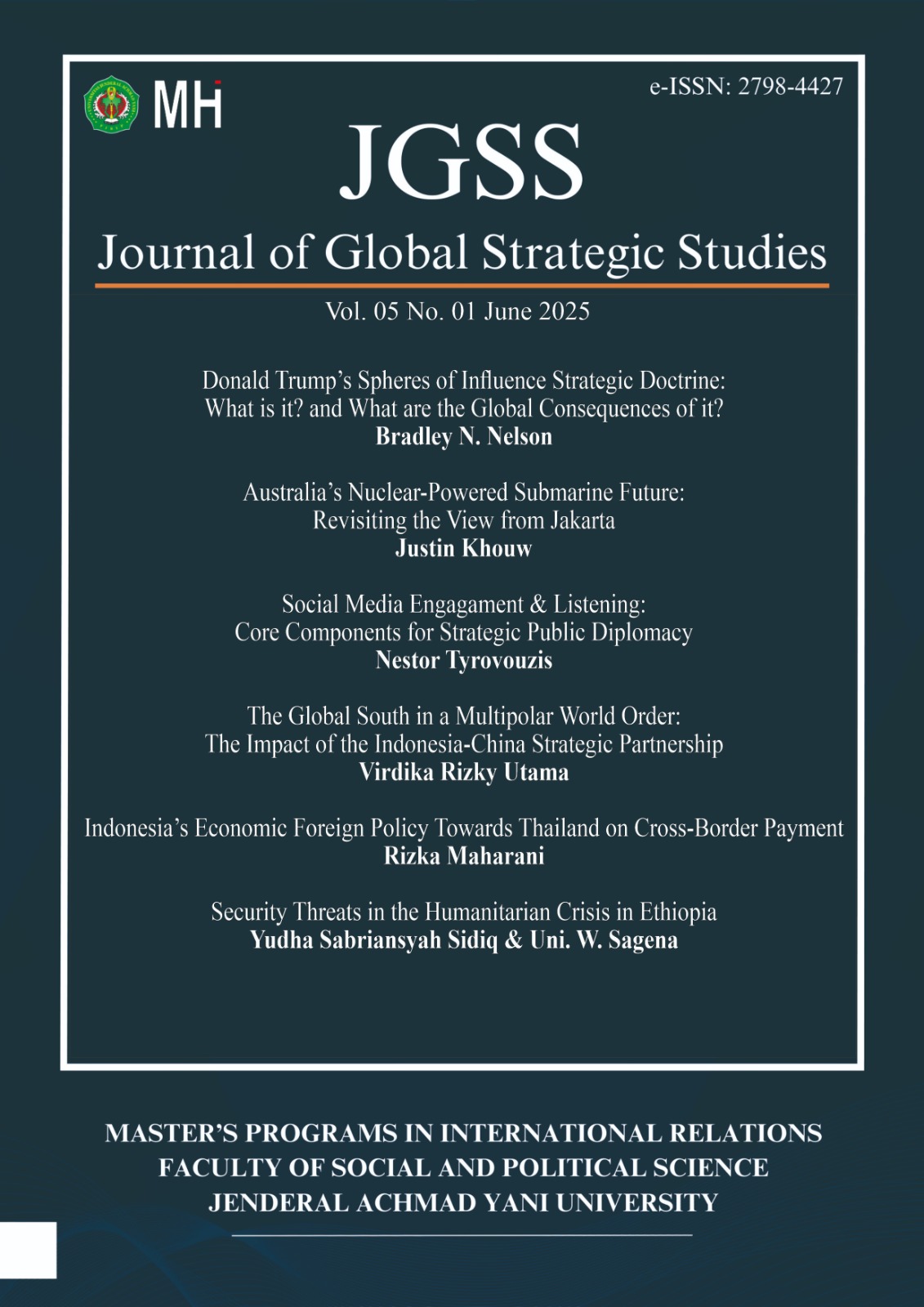The Global South in a Multipolar World Order:
The Impact of the Indonesia-China Strategic Partnership
Abstract
In the context of the Global South, this research examines the dynamics of relations between Indonesia and China, with a particular emphasis on economic cooperation, diplomacy, and geopolitical influence. This research primarily examines the impact of the Indonesia-China strategic partnership on the economic development of Indonesia and the ASEAN region, as evidenced by initiatives such as the Belt and Road Initiative (BRI). It also examines the potential economic dependency and geopolitical conflict in the South China Sea and the implications of this cooperation for developing countries. This study concludes that the Indonesia-China partnership can serve as a model of South-South collaboration that contributes to a more equitable multipolar global order. However, it necessitates strategic balance to prevent over-dependence. This conclusion is reached through a qualitative approach.


This work is licensed under a Creative Commons Attribution-NonCommercial 4.0 International License.
Copyright Notice
The Authors submitting a manuscript do so on the understanding that if accepted for publication, copyright of the article shall be assigned to Journal of Global Strategic Studies, Department of Master of International Relations, Faculty of Social and Political Science, Universitas Jenderal Achmad Yani as publisher of the journal.
Copyright encompasses rights to reproduce and deliver the article in all form and media, including reprints, photographs, microfilms, and any other similar reproductions, as well as translations.
Journal of Global Strategic Studies, Department of Master of International Relations, Faculty of Social and Political Science, Universitas Jenderal Achmad Yani and the Editors make every effort to ensure that no wrong or misleading data, opinions or statements be published in the journal. In any way, the contents of the articles and advertisements published in Journal of Global Strategic Studies are the sole and exclusive responsibility of their respective authors

















